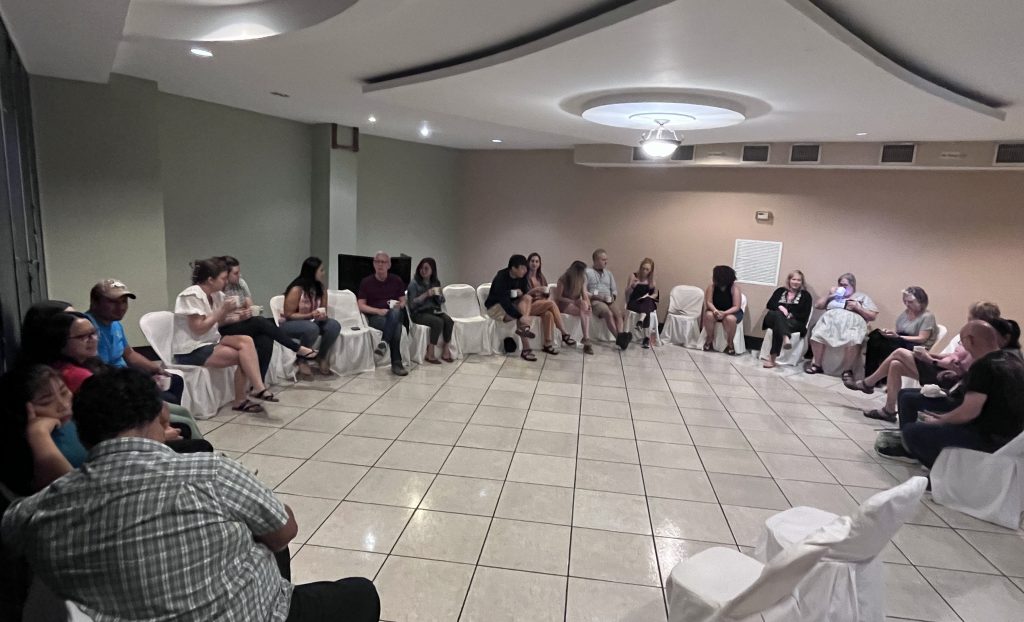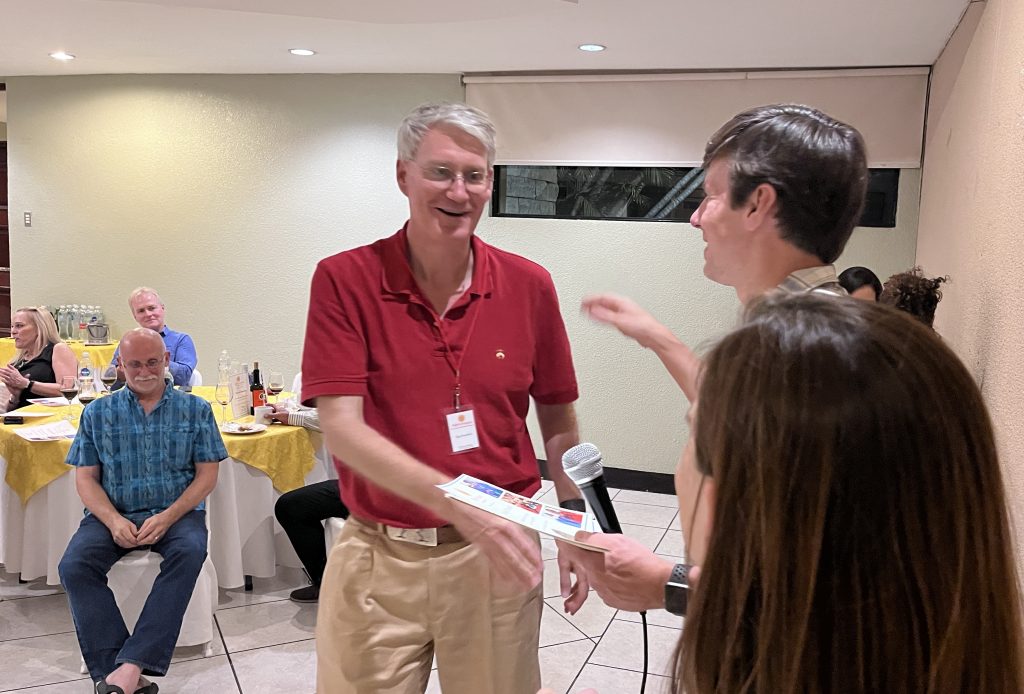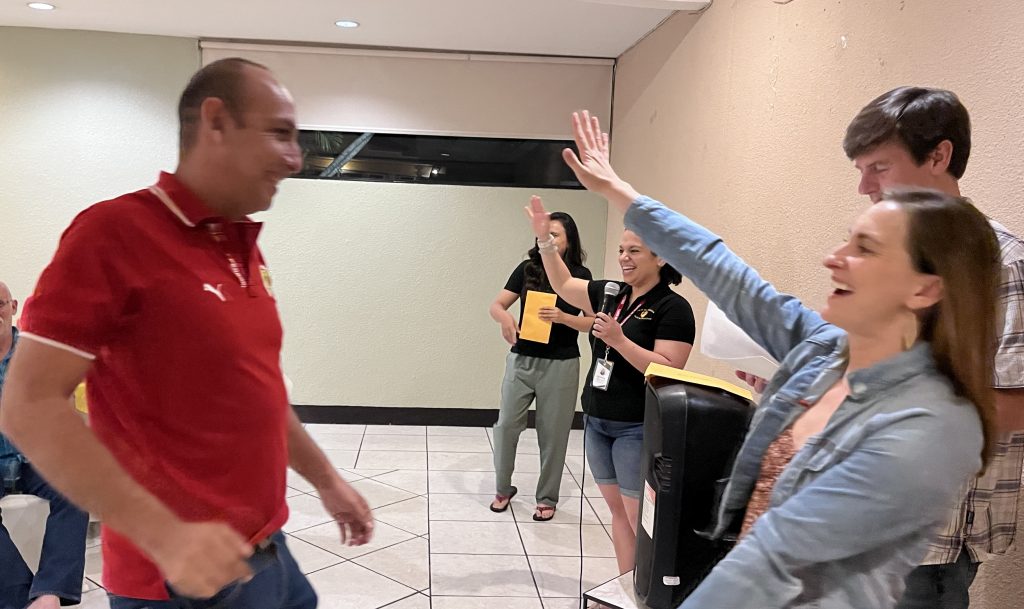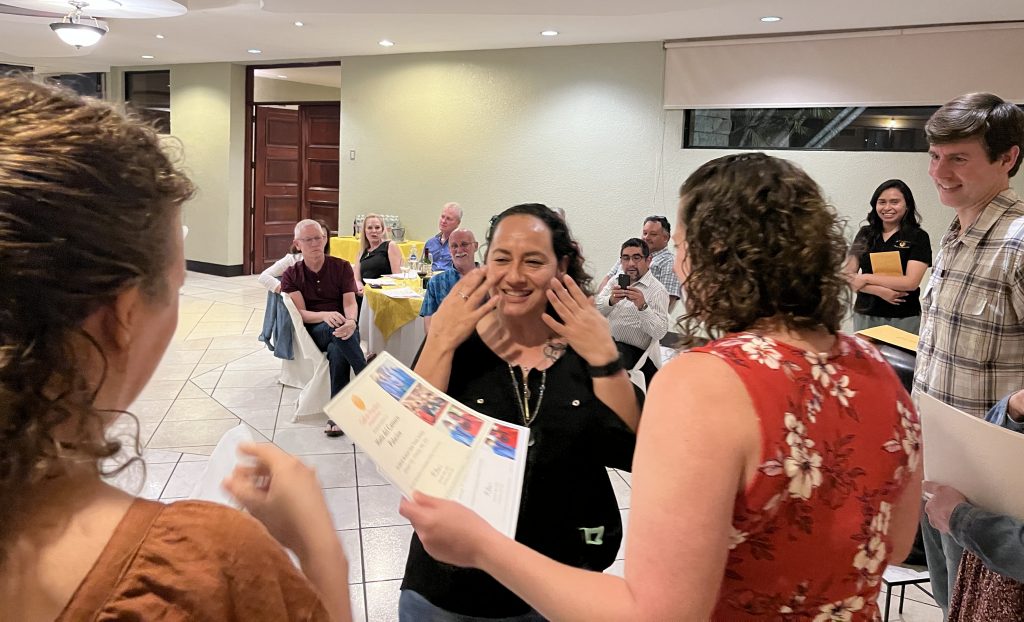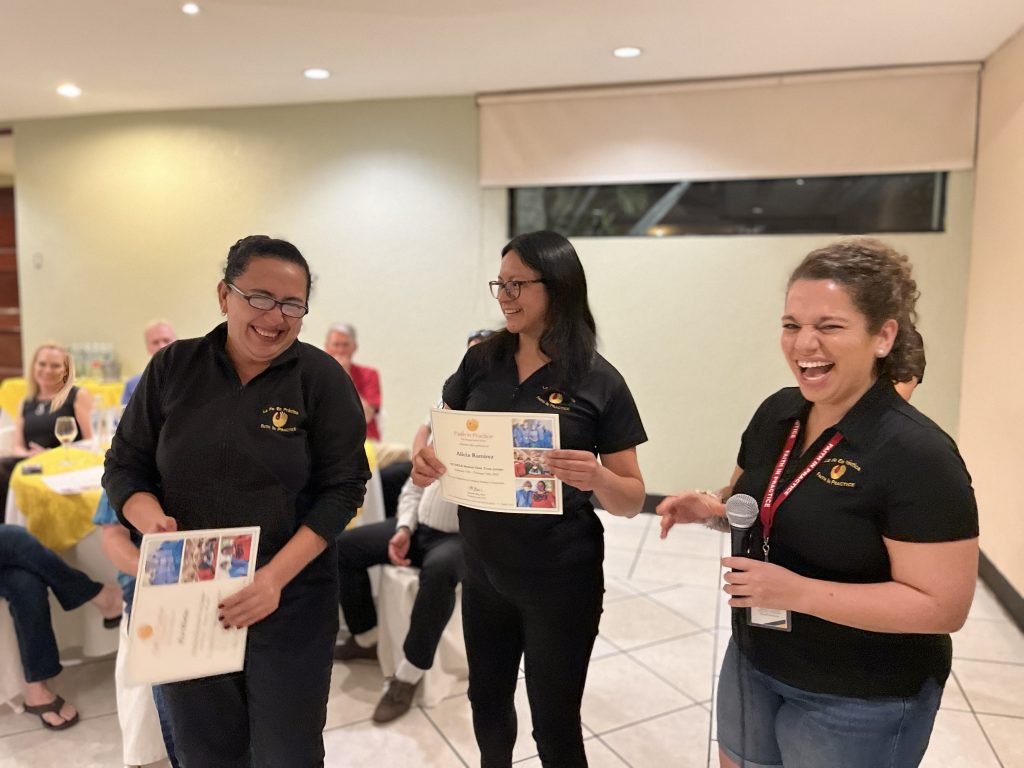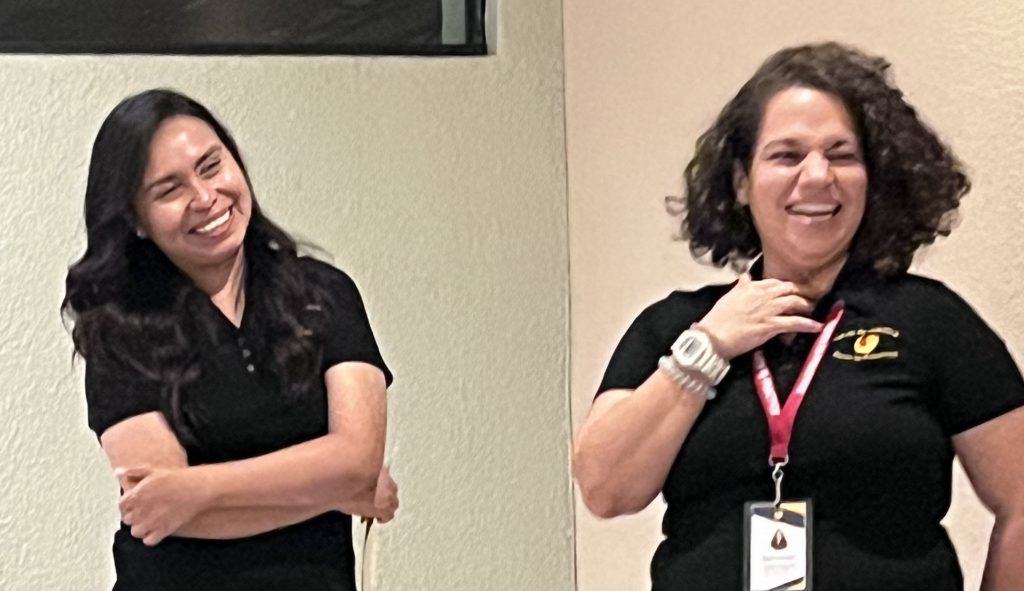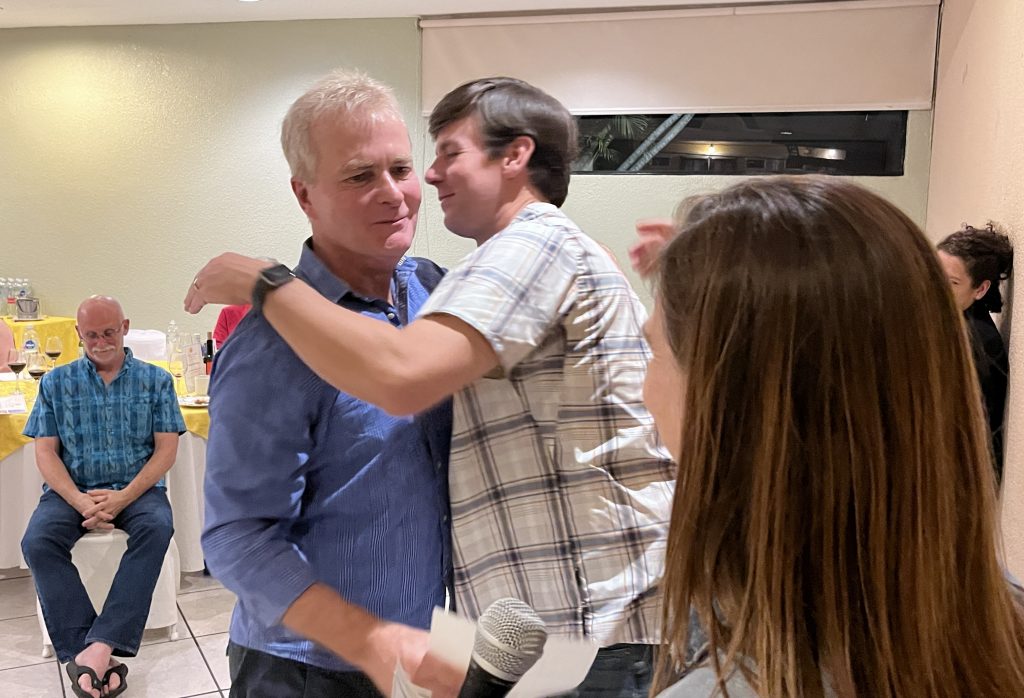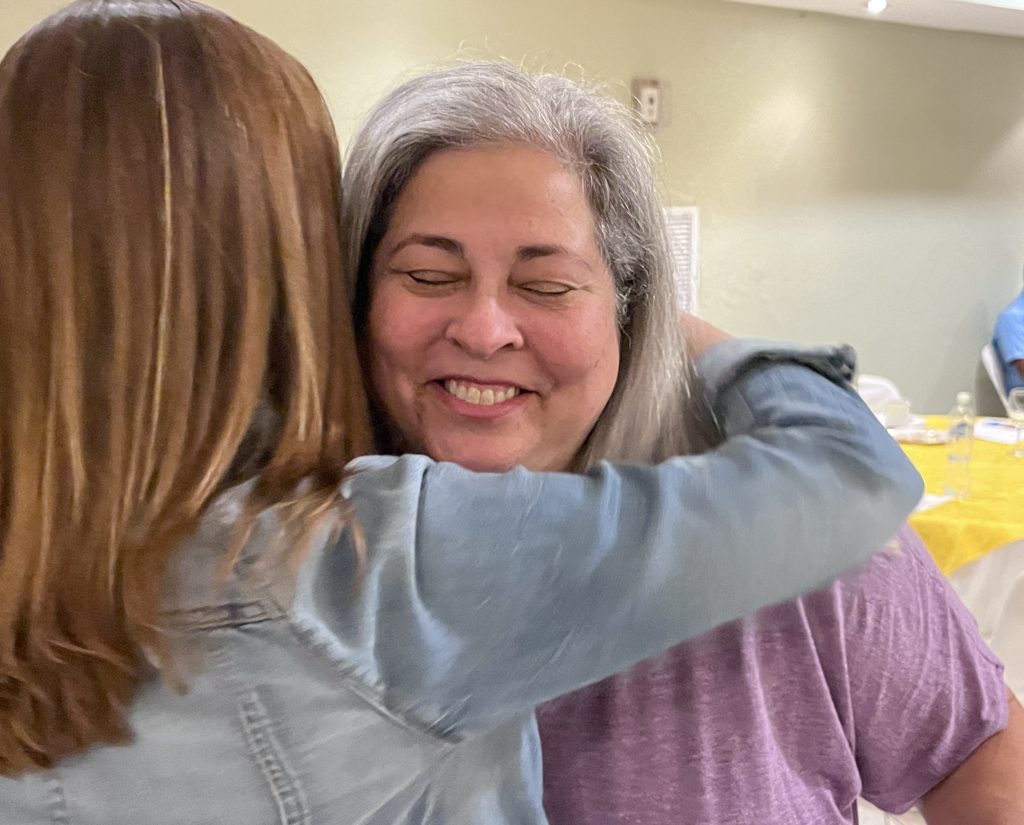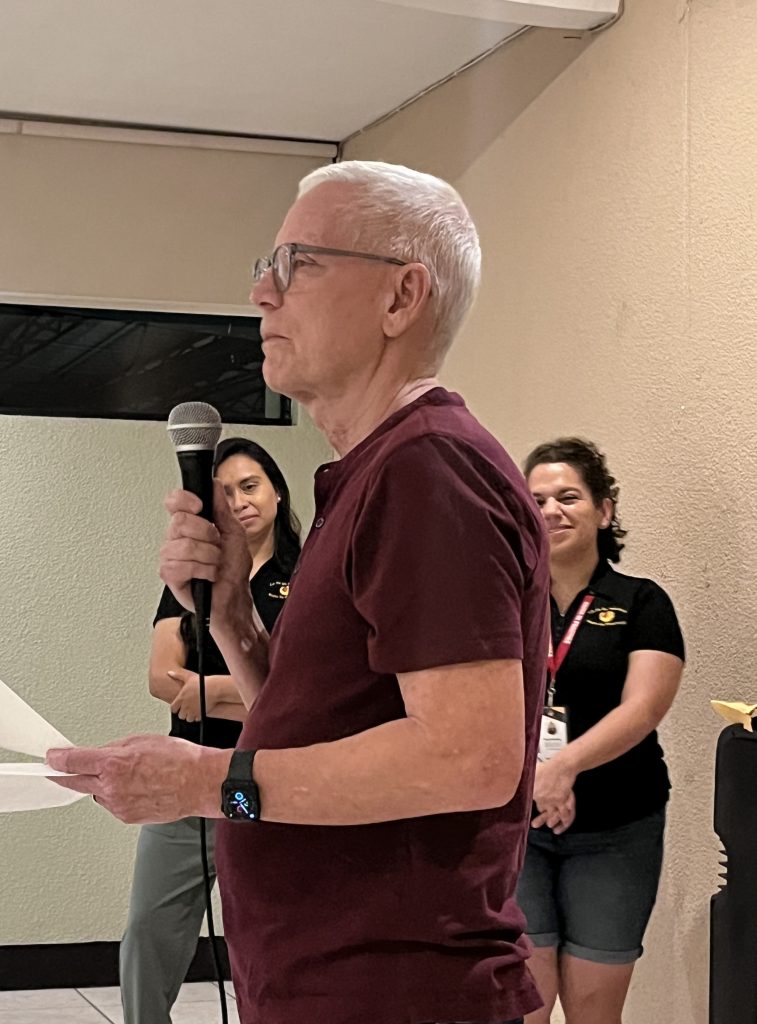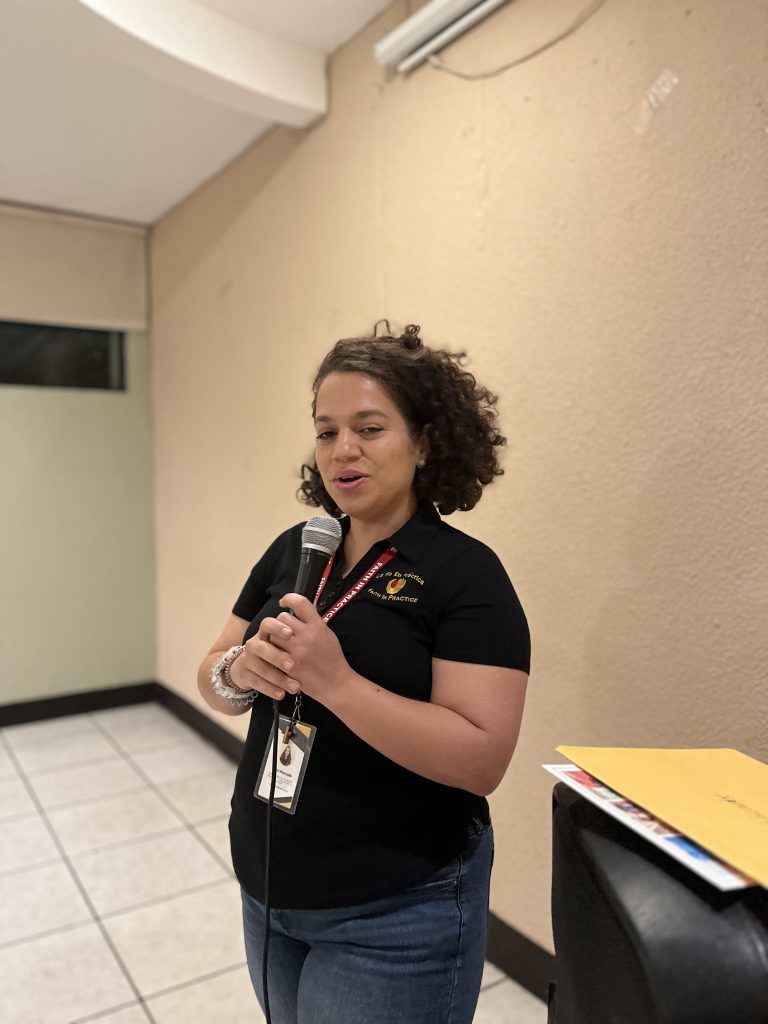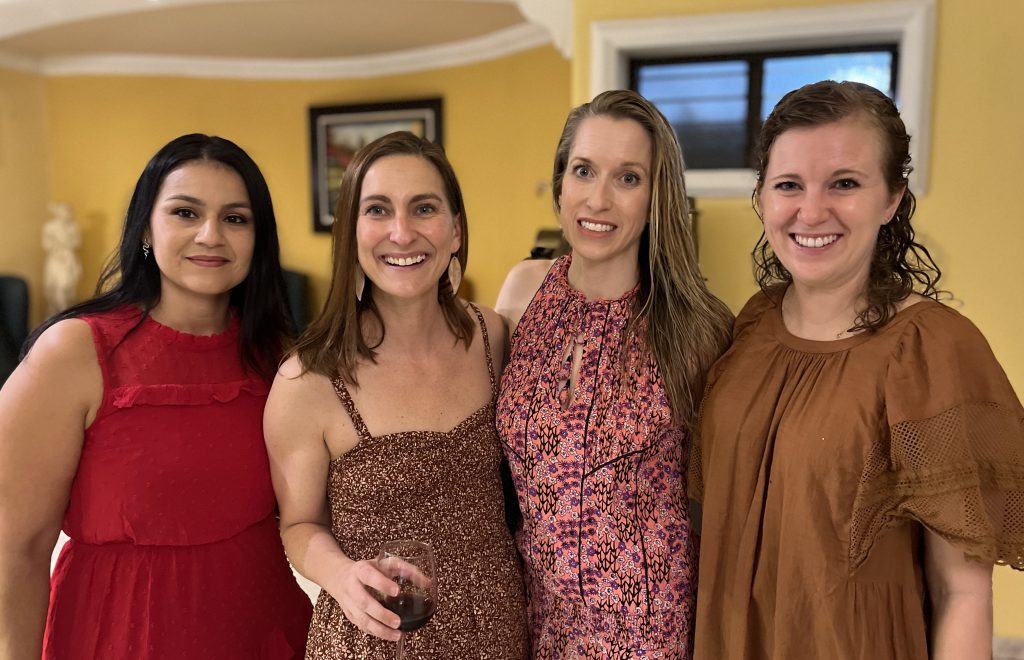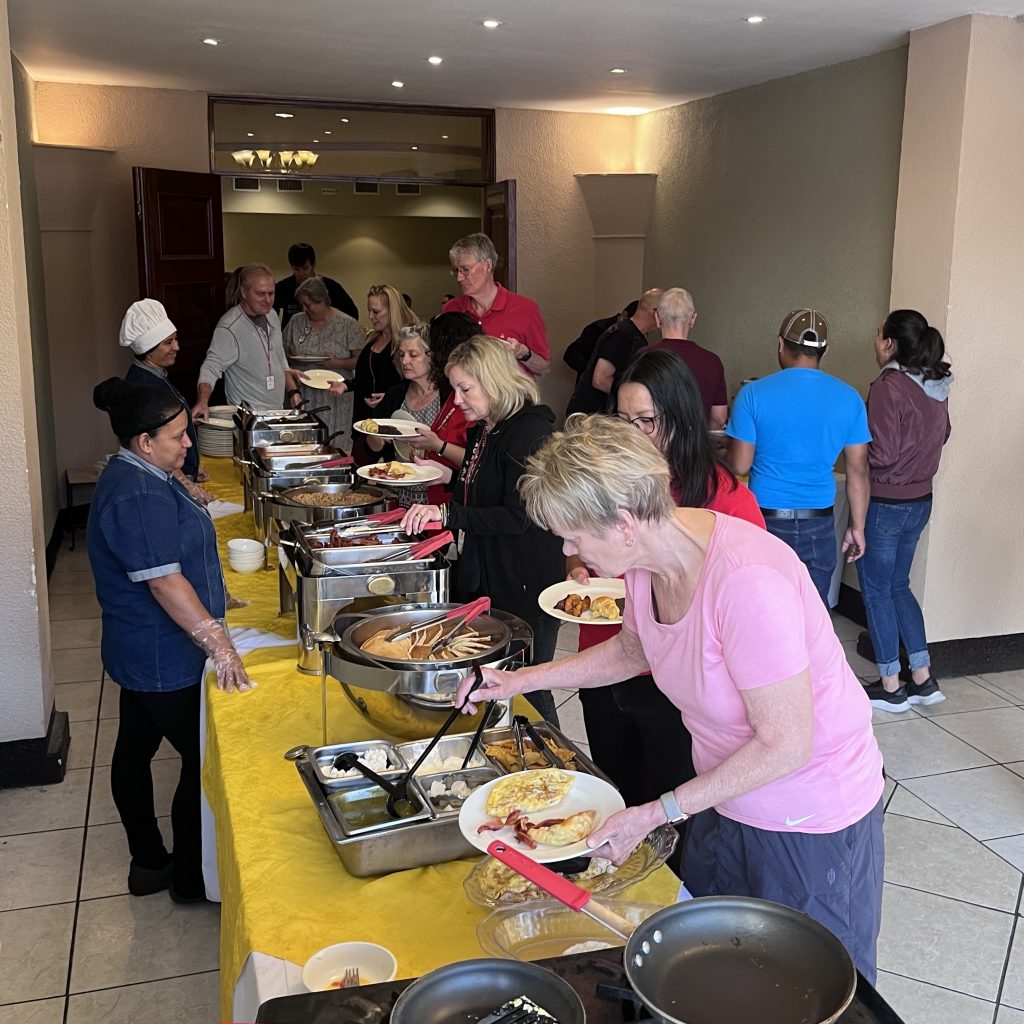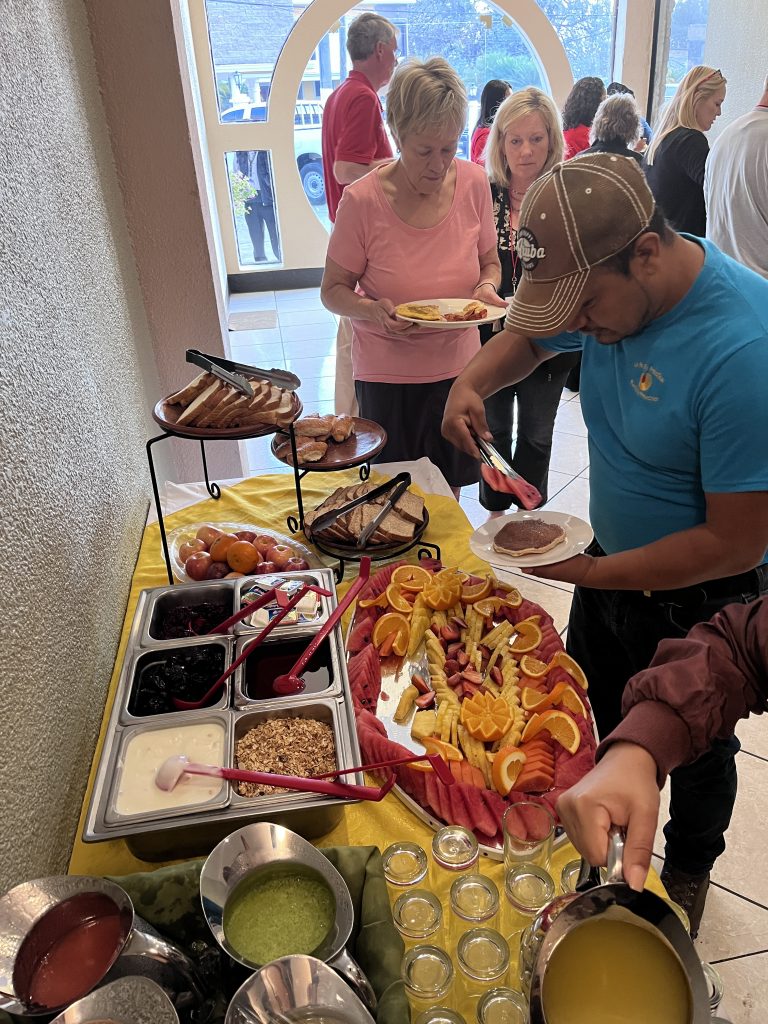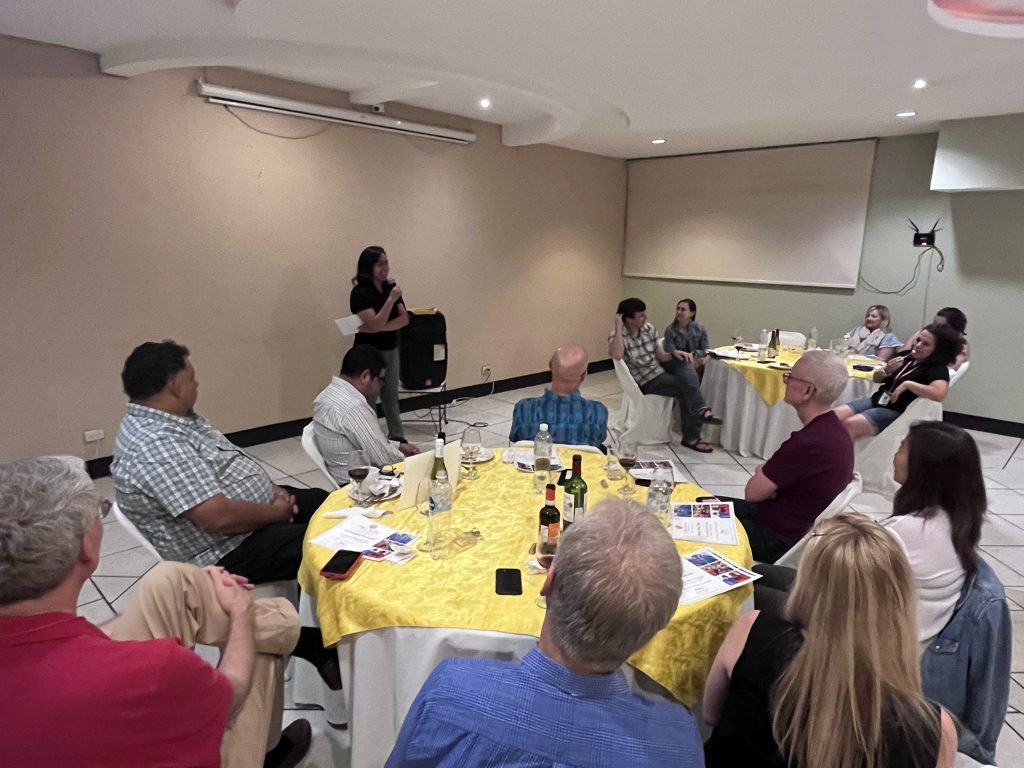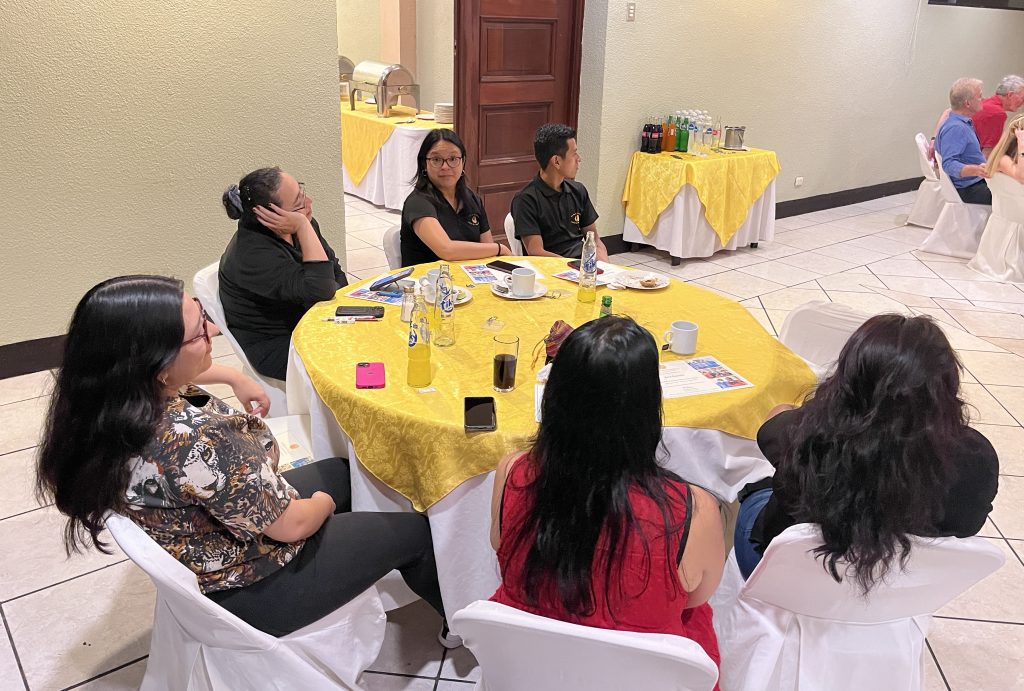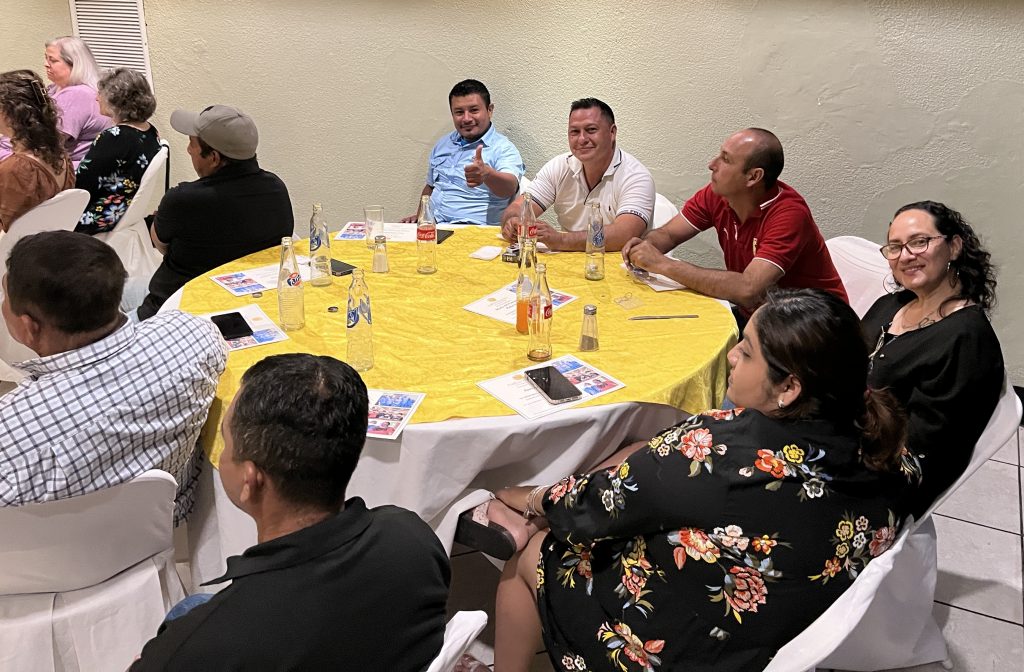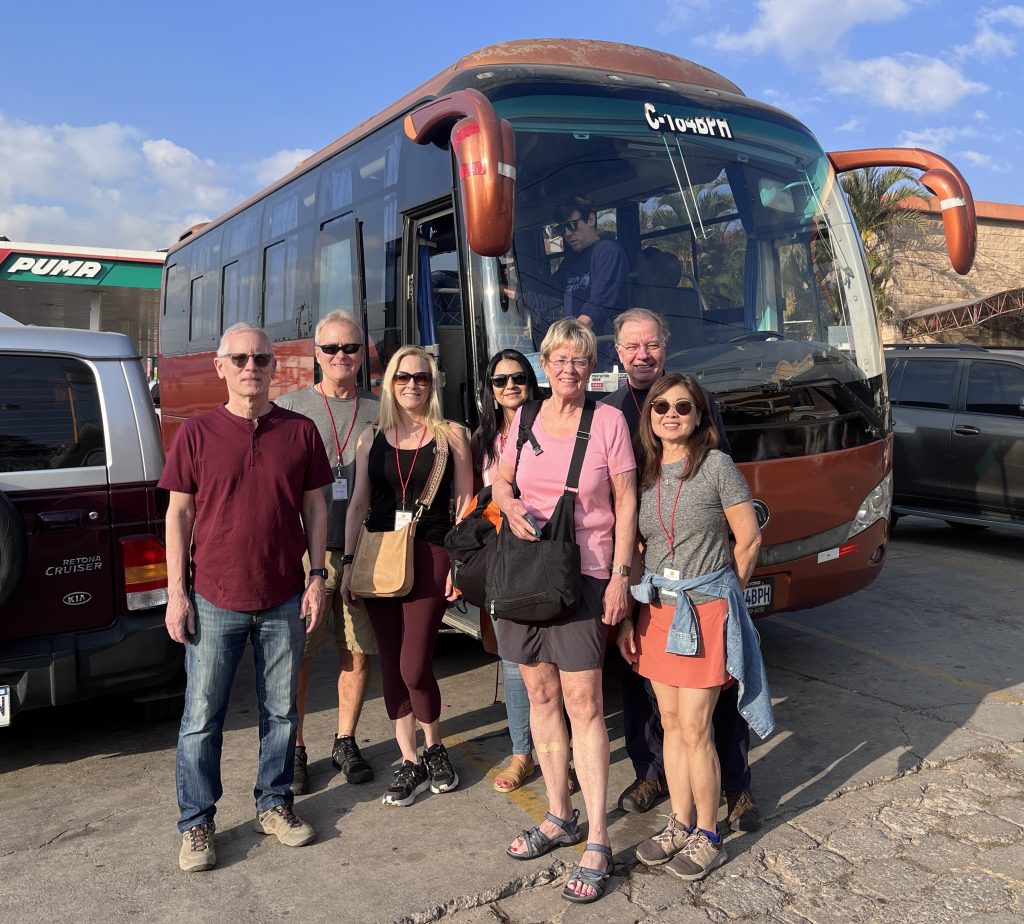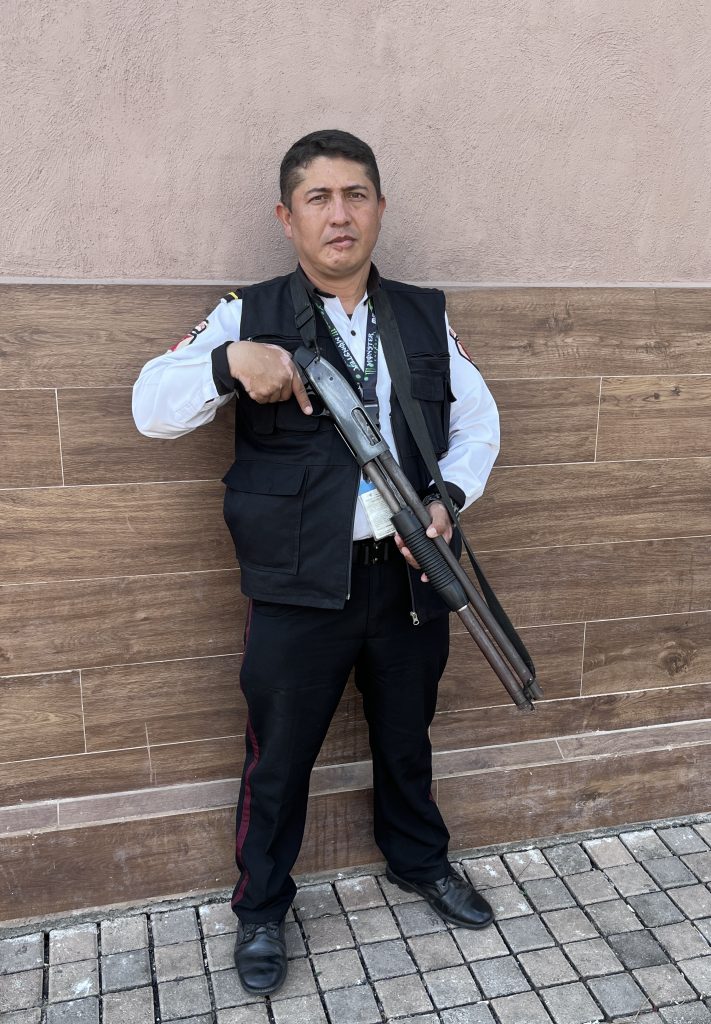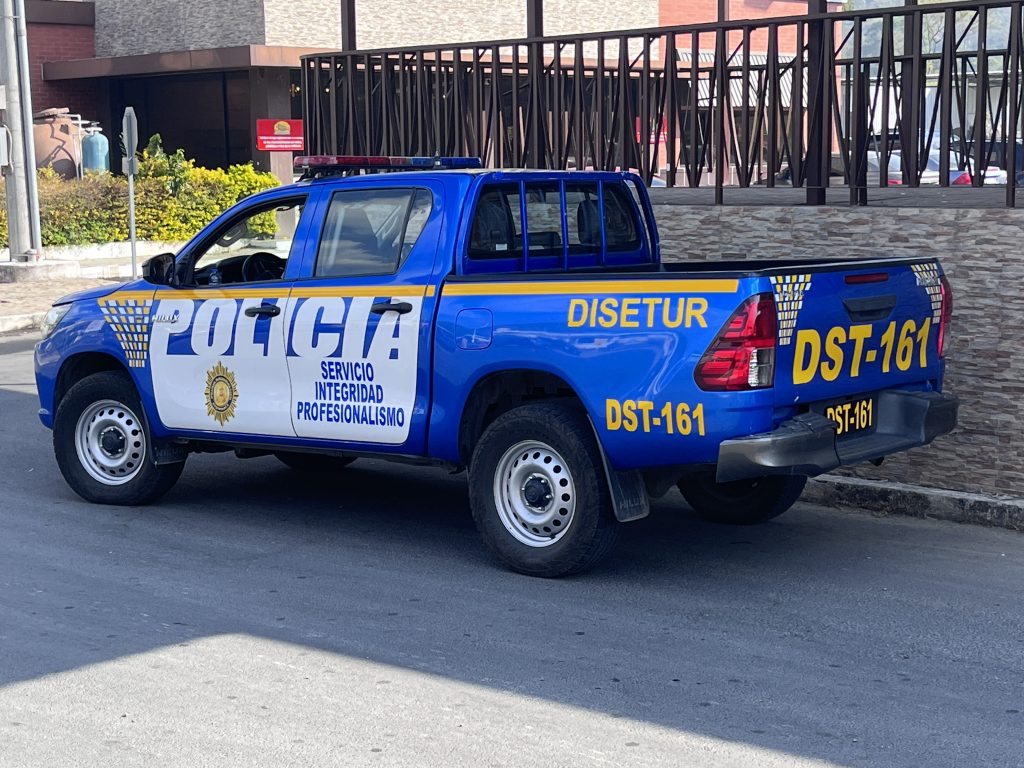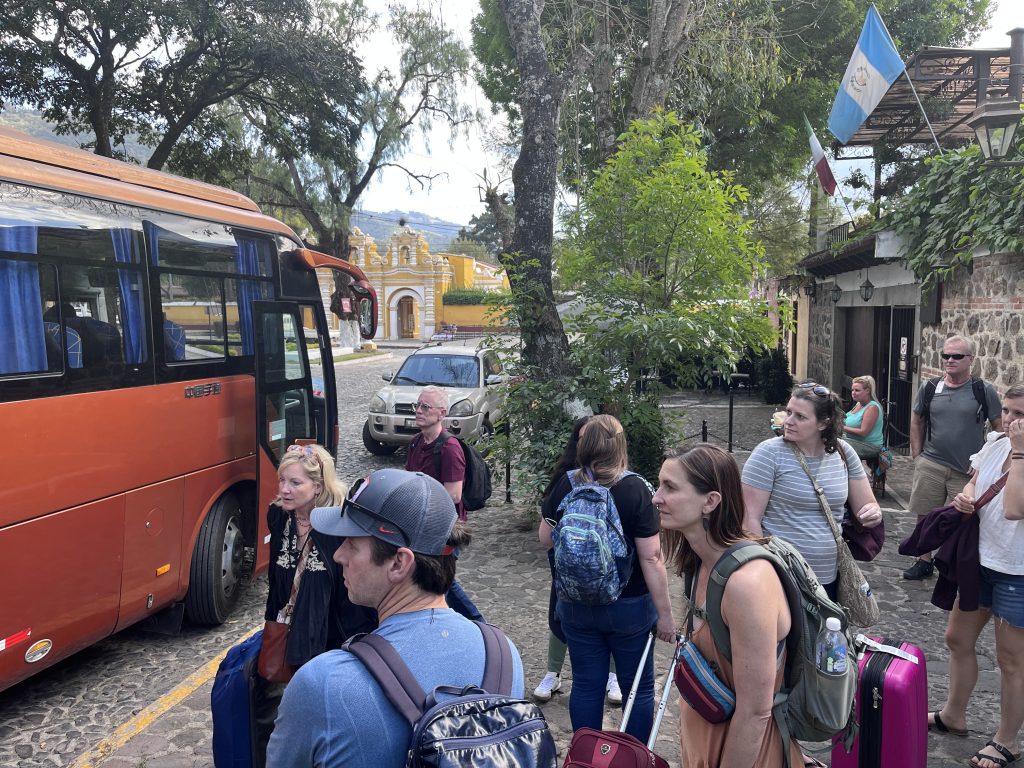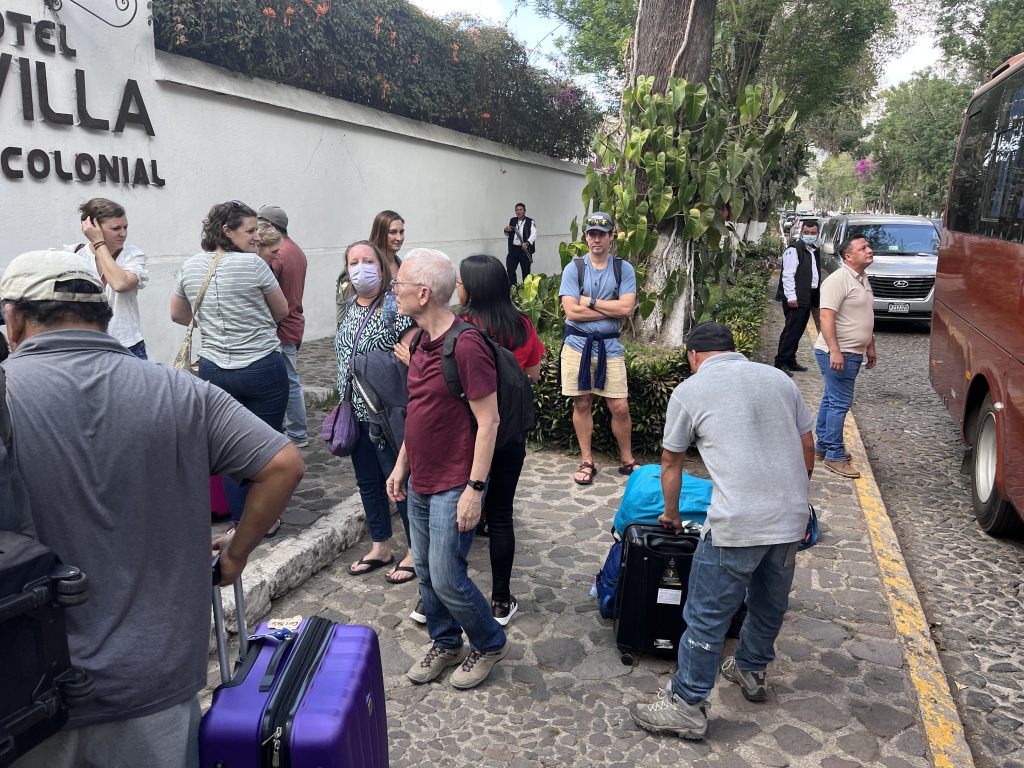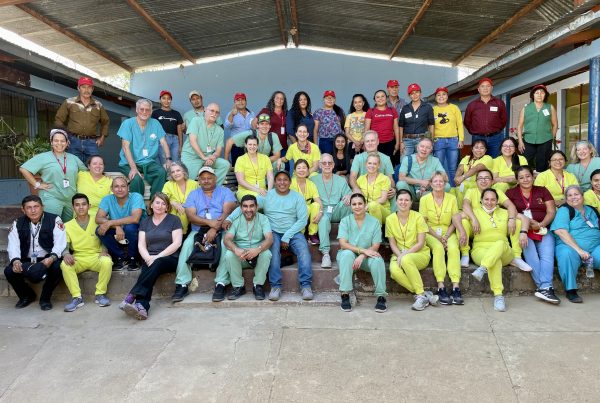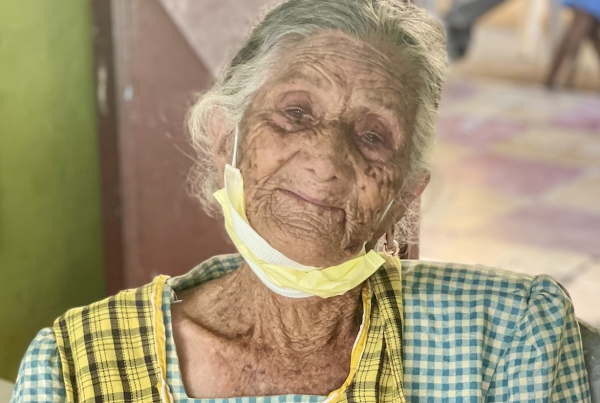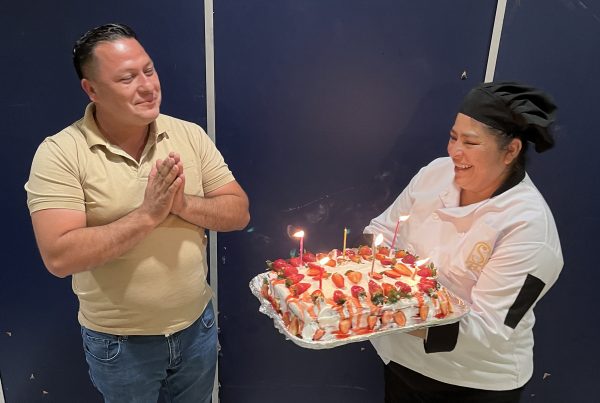We had a wonderful time at dinner last night saying our good-byes and receiving from our fearless leaders wonderful certificates of appreciation. The pictures posted on our roll will give you a good sense of the camaraderie that we have built and our own satisfaction with a job well done (around 925 patients and 1100 clinic visits with enough meds distributed to fill an F-150!).
The powers that be let us sleep in this morning: Up at 5:50 instead of 5:20! This is what Faith in Practice team leader generosity looks like (and is always appreciated)!
Beth’s devotion this morning on Max Lucado’s Travelling Light was more than advice about not bringing mule-pack sized suitcases on the next trip. Rather, travelling light and travelling well, for Lucado, requires downsizing physical stuff, but also personal and psychological burdens that can weigh one down. Our self-destructive behavior feeds self-imposed unreal expectations that drive us in the wrong direction; and reinforce painful feelings, thoughts, and damaging spirits that hinder our true nature. Travelling light in all these ways means more freedom, more nimble navigating, and a clearer vision of where we can and should direct our aspirations and actions. Well said Max and Beth!
Breakfast downed, luggage loaded on the bus, and we are off for the three-hour drive back to Antigua (which unfortunately stretched a bit longer than that because of traffic). This is a scenic drive through hills and valleys with significant agriculture and grazing. But it’s also disconcerting seeing up close the hard life that the people of this region—our patients—have to endure. The land has been used pretty heavily—deforestation and mineral depletion, overgrazing, and very small family farms with plots and hungry animals are obvious– and torrential rains that start each May are a continuing challenge to the soil health and infrastructure. Destitute is too harsh a description, but not by much. Still, one get’s a sense of a truly pastoral existence in the countryside, in the small villages, and the private walled homes with their large porches and play areas. Nearly every village has a primary school, little shops, gas stations, and some a clinic or small military outpost. Of course, cell phone and satellite TV penetration is near 100%! And road construction is growing and is surprisingly excellent on the major Central American trunk lines from Tapachula on the Mexican border to the gateways into Hondouras and El Salvador. Hundreds of trucks a day on this route are starting to bring some economic benefits (and other challenges) to the region.
We have security protection the whole time on our trip, but it wasn’t until this morning at a gas station stop that I finally saw up close the hardware that our escorts are packing! In spite of their vigilance (or maybe because of it), I think every member of the team would tell you that they felt completely safe the whole trip.
As we leave the dusty drive, parched hills and, and plunging ravines with dry rivers, we head into the hills south of Guatemala City. Here, the emerging evergreen forests mixed in with bamboos, deciduous trees, and even bougainvillea and other flowering hedges speak of cooler climates, better soil, and a higher living standard for many people. To the north, Guatemala City stretches out below us like a floating metropolis. Its hundreds of high-rise buildings and disorderly street life feel more like Kowloon or Shanghai or Bangkok than like Jutiapa. On the drive back today we passes 48 McDonalds, 80 car dealerships, 15 new Texaco gas stations, flower markets, nurseries, and green fields. The USAID headquarter complex is nestled up next to the St. Tropez Apartments and dozens of other buildings in tony neighborhoods. Even the darn traffic jams are signs of economic movement, an emerging middle class, and an exuberant optimism among many people.
But what we saw on that drive to Antigua today should give us pause. It is a harbinger of the grand—even existential–challenge that Guatemala faces. Because for every winner—every person that seems to be on the crest of the wave riding to a modicum of prosperity—our friends in places like Jutiapa and the dozens of other communities that Faith in Practice serves are not in the same place. The work before all of us–whatever our political alignments– is to do what we can to help Guatemala and her people experience the blessings that are due all of God’s children. That’s why we will be back next year.
Many of us will be up at 3:30 tomorrow (Saturday) morning for the trip to the Airport. Our flights will be dribbling out all morning and early afternoon, with the goal that all of us will be home by midnight Saturday. Even though it is goodbye from Guatemala for Team Delk 753, we will be posting one more blog entry a week from Monday (27 February). Many members of the team will contribute a closing entry on their experience once they have a few days to settle back into their regular lives. So, stay tuned for their insights and reflections. We’ll include the many voices of our local Guatemalan staff in the conversation as well–a treat you won’t want to miss. And for those of you who have been reading our blog this week, I’d invite you to send your comments and maybe even a postable contribution to the last entry. As the months turn into years, the Delk team will want to remember the lives we touched here in Guatemala, but also the support and well-wishers back home that contributed to our success. You can send those notes to joelzimbelman@gmail.com
Oscar Arnulfo Romero, 4th Archbishop of San Salvador, was gunned down in 1980 while performing the morning Eucharist. He has been a beacon for years to many of the sorts of people we served this week in clinic, and a warrior (and now Saint) for social justice. Many of his sermons and prayers have been published, but this is a favorite among those who serve in missions in this region.
It helps, now and then, to step back and take a long view.
The Kingdom is not only beyond our efforts,
it is even beyond our vision.
We accomplish in our lifetime only a tiny fraction
of the magnificent enterprise that is God’s work.
Nothing we do is complete,
which is a way of saying that the Kingdom always lies beyond us.
…..
This is what we are about.
We plant the seeds that one day will grow.
We water seeds already planted,
knowing that they hold future promise.
We lay foundations that will need further development.
We provide yeast that produces effects far beyond our capabilities.
We cannot do everything,
and there is a sense of liberation in realizing that.
This enables us to do something,
and to do it very well.
It may be incomplete, but it is a beginning, a step along the way,
an opportunity for the Lord’s grace to enter and do the rest.
We may never see the end results,
but that is the difference between the master builder and the worker.
We are workers, not master builders;
ministers, not messiahs.
We are prophets of a future that is not our own.
-Joel Zimbelman
To support this team and their commitment to our patient’s visit:


